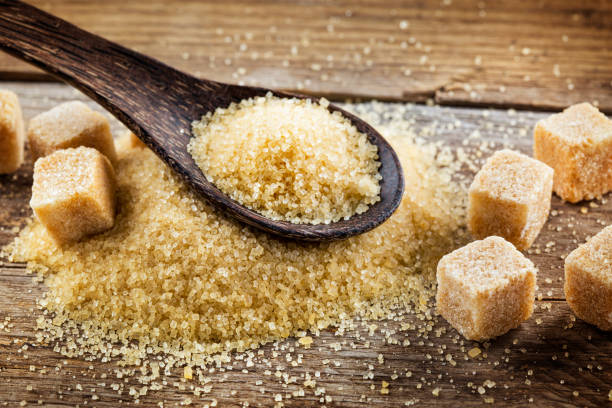The #1 Rated Blood Sugar Formula
Sugar Intake Impacts Blood Pressure

Though sodium (salt) is known to lead to high blood pressure, or hypertension, sugar can actually play a role too. Eating too much sugar can inhibit the production of nitric oxide (NO) in blood vessels. Nitric oxide normally helps with vasodilation (expanding of the blood vessels). Without NO, vasoconstriction (narrowing of the blood vessels) can result, leading to high blood pressure.
Learn of the role sugar plays in hypertension and discover ways to keep sugar intake—and, in turn, your blood pressure—at healthy levels.
High Blood Pressure: Sugar vs. Salt
Typically, people think of salt as bad for blood pressure. However, sugar is actually also responsible for high blood pressure and is a leading cause of it.
Fructose, a type of simple sugar, raises the levels of uric acid in the blood, which in turn inhibits the production of nitric oxide. Nitric oxide is what helps your blood vessels maintain flexibility, so when levels of NO are lowered, you can experience a rise in blood pressure.
In addition, increased sugar consumption can lead to weight gain. Obesity is also a contributor to elevated blood pressure.
Sugar in processed foods is considered a main driver of hypertension, as well. Some sugars are worse than others. In particular, "added sugar," such as table sugar and syrups used to prepare and process foods, is thought to be more harmful than naturally occurring sugars like those in fruit and milk.
Furthermore, research suggests that sugar intake can actually increase salt sensitivity, leading to the enhanced negative effects of sodium on blood pressure. A 2017 research study, in fact, discovered an association between sugar intake and high blood pressure in older women.4
Hyperinsulinemia
Hyperinsulinemia occurs when the level of insulin in your blood is higher than normal. Insulin is a hormone that pulls glucose from the food you eat into cells, where it is used for energy.
It is one of the diagnostic criteria for type 2 diabetes, a condition that develops when the body becomes less sensitive to insulin and cannot use it effectively to turn sugar into energy. If left untreated, hyperinsulinemia can lead to high blood pressure as well.5
Studies have shown that roughly half of those with hypertension have either hyperinsulinemia or glucose intolerance.
Insulin Resistance
Insulin resistance also is associated with high blood pressure. With insulin resistance, your body struggles to use glucose for energy because it doesn't respond to insulin as it should. This leads to the overproduction of insulin by the pancreas.
Insulin resistance is closely linked to hypertension, and together they lead to an increased risk of heart disease and diabetes.
Nitric Oxide
Nitric oxide, produced by the inner layer of cells of blood vessels, relaxes the inner muscles of your blood vessels and opens them up. NO helps boost blood flow and controls blood pressure.
As we age, our cells produce less nitric oxide, so blood vessels become less flexible, contributing to hypertension, inflammation in blood vessels, and atherosclerosis (plaque buildup on the inner walls of cells), which is a known risk factor of heart disease.
Nitric Oxide
Advanced glycation end products (AGEs) are potentially harmful compounds that exist in the body and in foods. They are formed when protein or fat combine with sugar. Within foods, they are sometimes referred to as dietary advanced glycation end products (dAGEs). They are linked to inflammation and higher levels of oxidative stressors that are themselves linked to both heart disease and diabetes.
Dietary Changes to Help Lower Your Blood Pressure
Tips like starting the day with a nutrient-rich smoothie, enjoying fresh fruits, and ensuring adequate water intake can help control cravings and might keep you from eating processed sugar.
Choose a diet that's rich in the following:
- Fruits
- Vegetables
- Whole grains
- Low-fat dairy products
- Skinless poultry and fish
- Nuts and legumes
- Nontropical vegetable oils
Be sure to limit your intake of saturated and trans fats, sodium, red meat (choose the leanest cuts available if you are eating red meat), and sweets and sugar-sweetened beverages.
There is some evidence to suggest that supplementing your diet with L-glutamine may be beneficial. One study demonstrated that, in overweight people and those with obesity, the effect of L-glutamine supplementation on gut
Key Takeaways
The best way to determine your average blood pressure is to have it taken multiple times. As you learn to decrease your sugar intake, you can monitor your progress over time. You can even purchase an over-the-counter blood pressure cuff and ask your provider to train you in its correct use.
If you are looking to reduce your risk for hypertension and associated conditions, eating less sugar, especially processed sugar, is a great first step. High blood pressure over time can damage the coronary arteries and lead to other health consequences. Speak with your provider about next steps and how to make adjustments to your diet.










